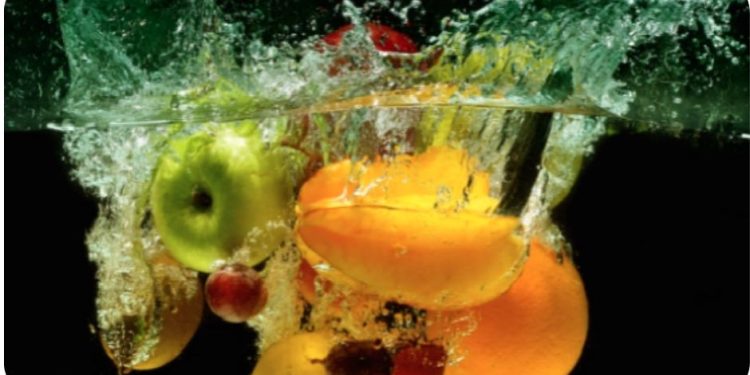It’s no secret that water is a must for produce processing plants. Whether the source is rural or municipal, the water must be filtered and tested to be safe, an issue that has received increased visibility due to the crisis over lead in the drinking water of Flint, Michigan.
Today’s potable water and wastewater treatment facilities face a multitude of challenges in an effort to provide clean, safe water to communities. Slashed municipal budgets, government regulations and the need for complex risk management plans challenge facilities every day.
Robert Gilliam is CEO of Oklahoma- based AquaCycle Management, a group that was developed initially to furnish equipment designed to filter injection well water from fracking operations for oil and natural gas and return it to agricultural surface use. Additional stages of filtering and permitting allow the water to enter the public water system with permitted approvals and ongoing testing.
“Much of the filtration now in the water processing industry as a whole utilizes membrane and/or ceramics,” he said. “In our case, we use a mixture of the two to maximize the quality of water required/desired, and then our operator can add magnesium, selenium or a variety of additives to manufacture the water we want to provide to the end user.”
Gilliam stresses that water must be continuously tested; that is to say, no variations from the testing protocols set up at the initial testing of the equipment.
“This is backed by mandates from both state and federal agencies. Any change can be immediately detected and a cause for the change identified and addressed,” he said. “This includes testing for a complete panel of solids, turbidity, salinity and trace elements from piping, internal equipment malfunction, etc.”
The filtered and processed water ahead of any additives or adjustments should be within minimal tolerance variance levels. “Deviations simply can’t be allowed,”
Gilliam said. “All documentation must be preserved and we recommend charting for immediate visual identification of changes.”
May Wu, principal investigator for water sustainability analysis for Argonne National Laboratory, Argonne, Illinois, notes water is a must for a produce processing plant. Whether the source is rural or municipal, the water must be filtered and tested to be safe.
“Current water filtration techniques should be able to filter out the undesirable particulates in water at modest cost depending on your requirement,” Wu said. “In municipal facilities, water quality is monitored daily. Source water is selected based on a set of guidelines. Together with disinfection techniques, the raw water after treatment can meet EPA regulation and should be safe to drink and to be used in produce processing plants.”
As for municipal wastewater discharge, standard practices track several key components in the water. Organics – expressed as biological oxygen demand (BOD), chemical oxygen demand (COD) and solids – are typically tested before discharge.
“In tertiary treatment facilities, nitrate and phosphorus are further reduced,” Wu said. “Using municipal wastewater to produce is regulated by state government. Typically, a tertiary treatment of the wastewater is added and disinfected to produce reclaimed water, which can be used as alternative water.”
A newer approach in filtration is the forward osmosis (FO) technology, which has been recommended by wastewater professionals recently. The FO can filter out the similar range of particulates as does reverse osmosis (RO), with lower operational cost.
“Other new technologies are not used in public water supply/treatment facilities because of either being cost prohibitive (i.e. ceramic membrane, although it gives super performance and fouling resistant) or being in early developmental stage (i.e. nano material- based membrane),” Wu said.
Accu-Tab/Axiall is the manufacturer of the Accu-Tab tablet chlorination system, which combines specially engineered chlorinators with controlled-release 68 percent 3-inch calcium hypochlorite tabs to deliver consistent and controllable chorine residuals.
According to the company’s website, the Accu-Tab system reduces the risk of leaks and requires no expensive safety systems — just rubber gloves and safety goggles are needed to handle these tablets.
The Accu-Tab system is used in drinking water applications for primary treatment or remote booster stations.
FSMA and filtration
Raw water testing should be conducted before the water source is selected, as a standard engineering practice. The chemicals tested now include organics, solids, bacteria, heavy metals, carcinogens, etc.
“Typical treatment includes filtration, disinfection (chlorination, PAA, UV, etc.),” Wu said. “Special treatment may be required to remove particular heavy metals, carcinogens and others. Usually, the water containing a high level of these chemicals is not recommended to be used as a source for water works. The same principle applies to a produce processing plant.”
The Food Safety Modernization Act plays a role to reinforce the high engineering standard. It will add pressure to regulation agencies.
What you need to know
When testing water, what needs to be done is different for each type of water. If the concern is drinking water, tests include water pH, turbidity, nitrate, heavy metals, organics and other inorganics. Local government should be able to provide such testing information regularly (quarterly or monthly).
“For example, DuPage County releases tap water test results periodically, and it’s quite comprehensive,” Wu said. “The water quality report includes test value, standard allowable upper limit, and if it exceeds or below the upper limit.”
Private environmental labs have the capability to test water quality at a reasonable price. The test can come back within a week.
Municipal agencies
Most municipal agencies check their water through sampling between one and three times a day for a variety of pollutants, and industry experts recommend all utilize the same protocols that are in place with local water management groups.
“Some municipal agencies test water continuously, and if that is the standard protocol, that is the same protocol that we follow,” Gilliam said. “Often the water produced through our equipment will exceed the standards set by local municipal or regional water boards. If that is the case, it is often wise to meet with these agencies and determine if they are able to meet the standards, and if not, help the local authorities find ways to achieve minimum standards.”
— Keith Loria, VGN correspondent































